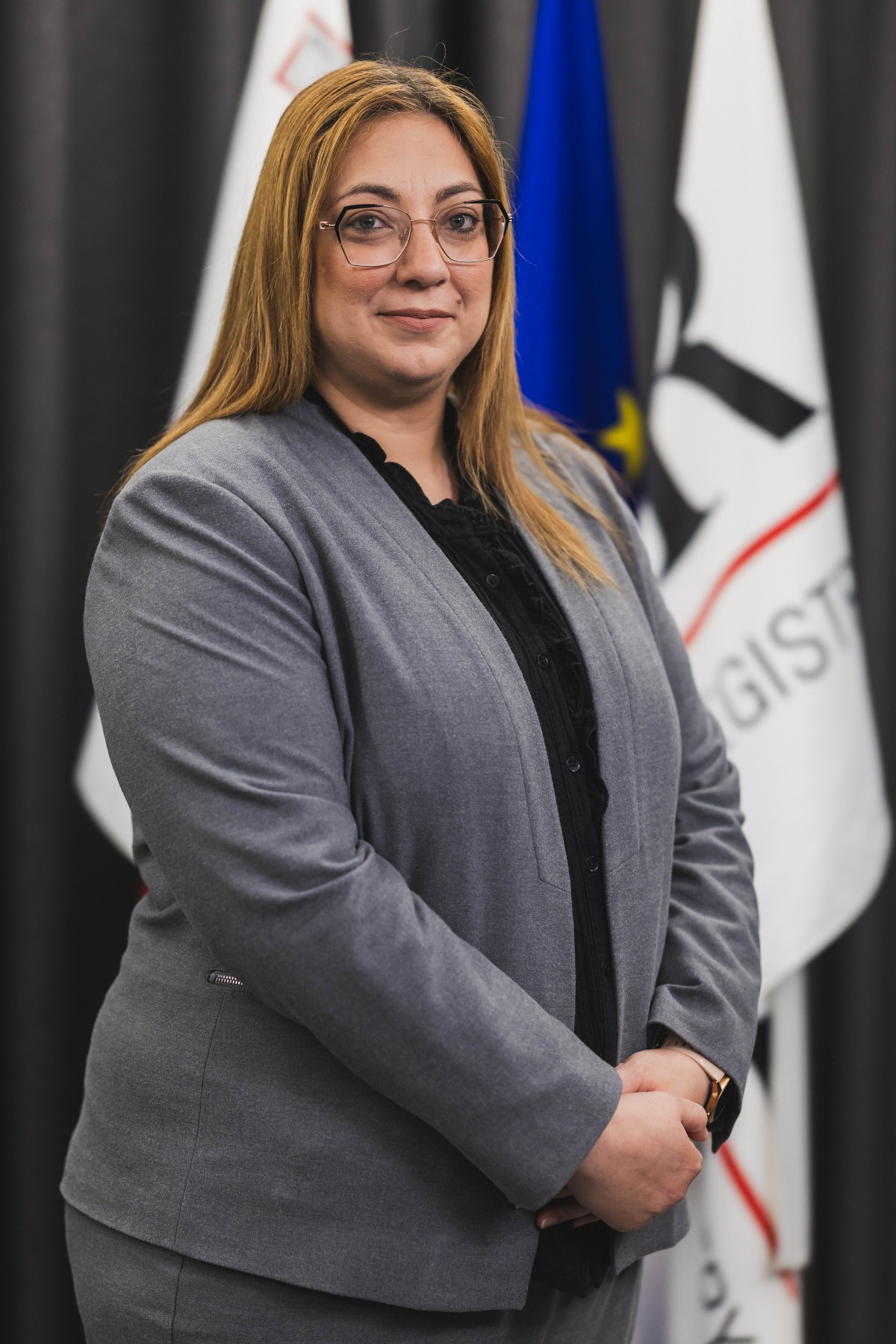As global business registry mandates develop beyond mere data storage, the Malta Business Registry (MBR) is undergoing a strategic identity shift, emerging as a critical enforcer of corporate transparency, efficiency and compliance.
No longer just a repository for paperwork, the MBR is now a proactive player in maintaining Malta’s financial integrity and adherence to Anti-Money Laundering (AML) standards. The transition has been driven by lessons learned from the country’s FATF greylisting experience, cross-border obligations, and an understanding of the need to modernise business governance.
While MEEP’s Malta's Vision 2050 describes Malta as a viable jurisdiction with a long-term approach, MBR CEO Geraldine Spiteri Lucas has guided her organisation through regulatory changes and internal reinvention, sharpening the Registry’s purpose and administrative pace.
“We’ve moved from being record keepers to gatekeepers,” Dr Spiteri Lucas states, in reference to Malta’s commitment to becoming a tech-forward jurisdiction, safeguarding data accuracy and building international trust.
This evolution has been most visible in MBR’s full-scale digital upgrade via its launch of BAROS (Business Automation and Registry Operations System), the flagship online platform intended to overhaul how companies register, file, and interact with MBR. ‘Gamechanger’ may be an overused business term but BAROS earns the title, delivering on its promised gains and efficiencies by facilitating accurate reporting, streamlining submissions, and improving cross-checks and monitoring. Replacing outdated legacy systems, the platform resolves long-standing issues with document validation and form completion – eliminating common registration errors including expired passports and mismatched names.

'Something that used to take weeks now take just a few minutes' - Geraldine Spiteri Lucas on the MBR's new BAROS system
BAROS incorporates user-friendly two-factor authentication and qualified digital signatures, alleviating the historical bottleneck of paper-based signature collection. “Something that used to take weeks now literally takes just a few minutes,” Dr Spiteri Lucas shares proudly. The system is being continually improved in direct response to MBR’s own experiences and feedback from key stakeholders, she continues. A key outcome from these consultations is the upcoming launch of APIs for corporate service providers (CSPs). This vital feature will allow CSPs direct integration with MBR’s own systems, enabling real-time form population, dramatically reducing manual form-filling and improving data flow.
While compliance expectations are high, the aim of BAROS is to reduce administrative burden and compliance fatigue. Addressing CSPs’ and businesses’ concerns over the intricacies of governance standards and reporting responsibilities, MBR has introduced several practical smart features. “MBR is not trying to create barriers: anything that can be automated is being automated,” Dr Spiteri Lucas assures. “We’re also well aware that limited human resources are an industry-wide issue in a country of our size so we want to make things easier,” she adds.
Alongside the inevitable challenges of building proprietary technology, the reality of preparing MBR personnel for the BAROS rollout involved significant training (with Dr Spiteri Lucas assuming a hands-on approach and personally delivering training). Staff with little or no IT background found themselves on a steep learning curve, testing systems, learning AML rules and adopting a suspicious mindset toward potential fraud.
“Change doesn't happen overnight just because you build a shiny new tool,” Dr Spiteri Lucas candidly admits, however. Making BAROS a reality and driving it forward required strong leadership, not only to align internal mindsets with MBR’s digital vision, but also to earn employees’ trust in the process. “Staff had to believe in my vision to find their own motivation and energy for accomplishing this goal,” Dr Spiteri Lucas explains. Redefinition of roles and cross-team collaboration were essential, especially as BAROS was developed in-house.
In addition to the challenge of balancing compulsory staff training with maintaining workflow momentum, Dr Spiteri Lucas had to manage business relationships during the transition. “A deep cultural shift was necessary; we couldn’t just digitalise systems and expect results.”
Fast forward to today, and everyone from internal employees to external stakeholders is fully on board (with many staff now even training others on BAROS). “Empowerment and ownership are key aspects of how we do things and everybody shares a sense of pride in having built something meaningful that is genuinely making a difference,” Dr Spiteri Lucas adds.
BAROS is one piece of a broader puzzle. MBR’s future plans include further smart, integrated infrastructures to aid seamless information transfer and abolish repetitive paperwork. Intended as a one-stop shop for all MBR-related services,” the planned Central Data Repository (CDR) will enable investors to upload key documentation just once, for sending to banks, regulators, and authorities as needed. This solves the current pain point of repeatedly submitting the same paperwork to multiple entities. Interestingly, “the investor is always in control of what to share and with whom,” Dr Spiteri Lucas highlights.
Housing interlinked data, the CDR will integrate directly with CSP systems via APIs. “This isn’t just about filing forms digitally, it’s about building an ecosystem of data intelligence.”
Another plan is a National Business Portal, integrating government entities including JobsPlus into one unified digital interface. The initiative will be welcomed by self-employed individuals and joint ventures alike, with its practical step-by-step online assistance replacing today’s heavy bureaucratic practices.

Geraldine Spiteri Lucas shares: 'The MBR aims to be a benchmark and not just a database.'
Transformation does not stop at technology. The MBR’s ‘drive to simplify’ also includes the upcoming implementation of the Mobility Directive, supporting EU cross-border restructuring and easier company relocation. Malta has even gone beyond EU minimums by supporting mobility of companies from non-EU territories: the UK, US, Japan and China, Dr Spiteri Lucas notes.
Meanwhile, in March, Dr Spiteri Lucas, in her capacity as Chairperson of the CFR’s Working group, chaired The Working Group on Beneficial Ownership (hosting some 250 representatives from 40 countries).“Globally, registries face challenges in hosting a reliable register of beneficial owners,” Dr Spiteri Lucas explains. The Working Group discussed best practices for cross-jurisdictional information-sharing and gathered participants’ feedback on their challenges, mistakes and wins in maintaining robust BO information.
“Such collaboration is particularly important given the FATF’s push for cooperation between national registries – this can’t happen in isolation because money laundering has no limits!” Dr Spiteri Lucas emphasises. “Incidentally, while Malta was previously behind in verification, the post-greylist reality is we’re now ahead of other jurisdictions in supervising a national BO register and conducting verification.”
Malta is also raising the bar on its international reputation through a more finessed approach to measuring economic growth. Evolving beyond the numbers game philosophy of some years ago – where the quantity of annual company registrations was the highest priority – regulators now focus more cautiously on the quality of companies seeking to establish themselves in the archipelago and the breadth of work and business opportunities they could present for the country.
Malta’s approach to implementing EU regulatory directives is often faster and more responsive than other member states, Dr Spiteri Lucas reveals. However, she assures that the goal is data accuracy and helping businesses avoid non-compliance penalties – not enforcement for its own sake. This is also integral to managing insolvency. As the official receiver for insolvent companies, “MBR provides an up-to-date register to help businesses assess the financial health of others and hopefully avoid entanglements with potentially insolvent companies.”
“We’re not done. We’re also working on an AI strategy and always exploring how to enhance our digitalisation agenda. This is an ongoing process of modernisation; MBR aims to be a benchmark and not just a database,” Dr Spiteri Lucas affirms. Prioritising quality over quantity in company registrations, operating a high-functioning digital registry, and championing efficient beneficial ownership processes in and beyond Malta… Malta Business Registry is not just keeping pace with change. It is helping define what a modern, transparent, and intelligent business registry can (and should) be.
Main Image:
